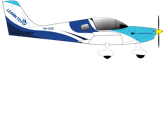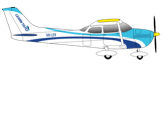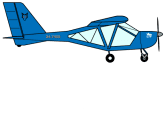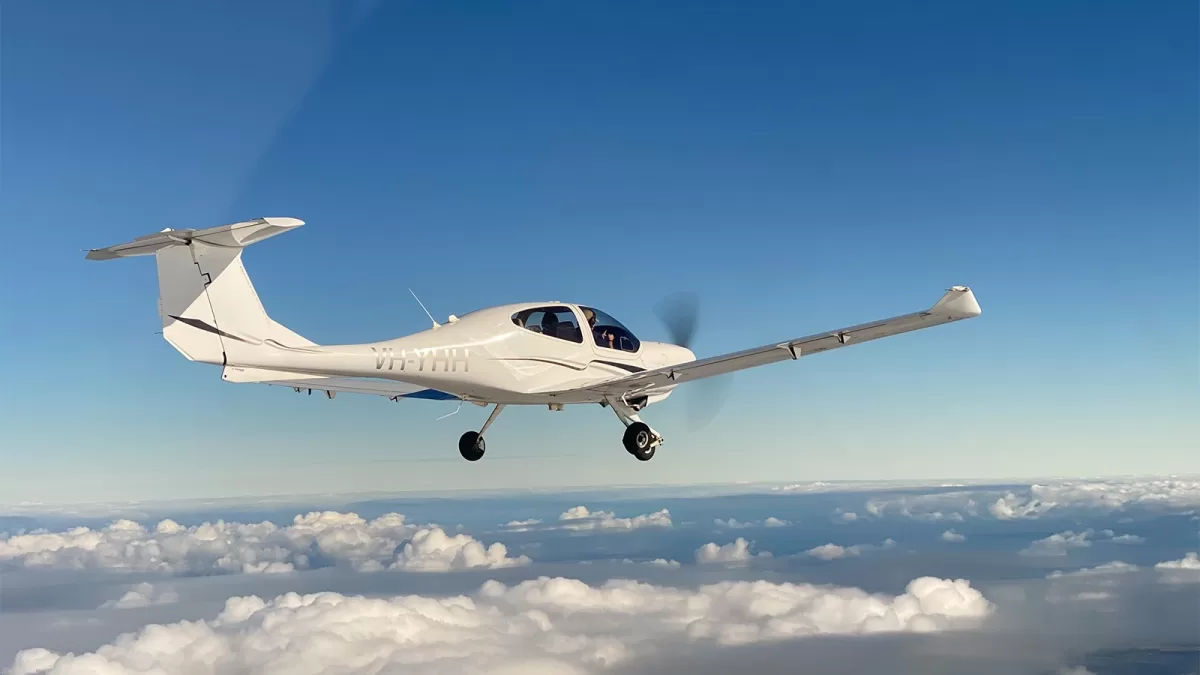
March 26, 2025
Mental and Psychological Demands of a Pilot’s Career
A career as a commercial pilot is both rewarding and demanding, requiring a high level of physical and mental resilience.
Pilots operate in a complex and high-pressure environment, where their performance directly impacts passenger safety, flight efficiency, and operational success. While flying may appear glamorous to those on the outside, the reality involves long hours, irregular schedules, and significant physical and cognitive demands.
Physical Demands of Being a Commercial Pilot
1. Fatigue and Irregular Sleep Patterns
One of the most significant physical challenges pilots face is fatigue. Long-haul flights, time zone changes, and night shifts disrupt the body’s natural circadian rhythm, leading to sleep deprivation and reduced alertness. Pilots operating international routes often experience jet lag, which can impair cognitive function and reaction times.
To mitigate fatigue, regulatory bodies such as the Civil Aviation Safety Authority (CASA) enforce duty time limitations and rest requirements. However, pilots must also take personal responsibility by adopting good sleep hygiene, staying hydrated, and using strategic napping techniques when possible.
2. Exposure to High Altitudes and Radiation
Pilots spend prolonged hours at high altitudes, which exposes them to lower oxygen levels and cosmic radiation. While modern aircraft are pressurised, the cabin environment still differs from sea-level conditions, potentially leading to mild hypoxia, dehydration, and fatigue. Cosmic radiation exposure is generally low but accumulates over a career, making it an occupational concern for long-haul pilots.
To counteract these effects, pilots should prioritise hydration, maintain a healthy diet, and get regular health check-ups to monitor any long-term impacts.
3. Prolonged Sitting and Musculoskeletal Strain
Spending hours in a seated position, often in a confined cockpit, can contribute to musculoskeletal issues such as lower back pain, neck stiffness, and poor circulation. Unlike office workers, pilots cannot take frequent breaks to stretch or move around freely during flights.
Incorporating regular physical activity outside of work, practising proper posture, and using ergonomic seat adjustments can help prevent discomfort and long-term strain. Some pilots also engage in targeted stretching exercises to alleviate muscle tension during and after flights.
Mental and Psychological Demands of a Pilot’s Career
1. High-Stress Decision-Making
Pilots are responsible for making critical decisions under pressure. From handling unexpected weather changes to resolving technical malfunctions, they must remain calm and decisive at all times. The ability to process vast amounts of information quickly and accurately is a key requirement for the profession.
To manage stress effectively, pilots undergo extensive training in crew resource management (CRM), which enhances their ability to communicate, assess risks, and make informed decisions collaboratively. Additionally, mindfulness techniques, breathing exercises, and stress management programs can help maintain mental clarity under pressure.
2. Responsibility for Passenger and Crew Safety
The weight of responsibility that comes with flying an aircraft is immense. Pilots must ensure the safety of passengers and crew members while managing external factors such as mechanical reliability, air traffic control directives, and weather conditions. This responsibility can create significant mental pressure, particularly in emergency situations.
Building resilience through experience, continuous training, and psychological support programs can help pilots develop the mental strength required to handle high-pressure scenarios without compromising performance.
3. Long Periods Away from Home
A pilot’s career often involves frequent travel, which can result in extended periods away from family and friends. This lifestyle can be challenging for maintaining relationships, especially for those with young children or partners who work regular office hours.
To navigate these challenges, pilots must find ways to balance work and personal life. Open communication with loved ones, planning quality time together, and utilising technology to stay connected while travelling can help reduce the emotional strain of being away from home.
4. Psychological Impact of Isolation
Despite being surrounded by crew members, pilots can experience isolation due to the nature of their work. Spending long hours in the cockpit, particularly on solo flights or long-haul journeys, can lead to feelings of loneliness.
Developing a strong support network among colleagues, engaging in social activities outside of work, and seeking professional mental health support when needed can help mitigate the effects of isolation.
Impact on Personal and Professional Life
1. Maintaining Work-Life Balance
Balancing a demanding career with personal commitments can be difficult for pilots. Irregular schedules and last-minute roster changes can disrupt social plans and family life. However, adopting a structured approach to time management, prioritising important personal events, and making the most of available downtime can improve work-life balance.
2. Career Longevity and Health Considerations
A pilot’s career depends on maintaining good health. Certain medical conditions, such as heart disease or vision deterioration, can jeopardise a pilot’s ability to hold a valid medical certificate. This makes preventative healthcare and regular medical check-ups essential.
Pilots should adopt healthy habits such as regular exercise, a balanced diet, and stress management techniques to ensure long-term career sustainability. For those considering a private pilot licence, maintaining good health remains equally important for personal flying and leisure aviation activities.
3. Financial and Job Security Concerns
While aviation can be a lucrative career, external factors such as economic downturns, airline bankruptcies, or industry disruptions (such as the COVID-19 pandemic) can create uncertainty. Pilots must plan for financial security by diversifying income sources, investing wisely, and maintaining qualifications that provide flexibility for career shifts if needed.
Strategies to Mitigate Negative Effects
1. Prioritising Physical Fitness and Health
- Engage in regular exercise to maintain cardiovascular health and prevent musculoskeletal issues.
- Follow a balanced diet to support energy levels and cognitive function.
- Stay hydrated and avoid excessive caffeine or alcohol consumption.
2. Managing Mental Well-being
- Practice mindfulness and relaxation techniques to cope with stress.
- Seek professional support if experiencing prolonged stress, anxiety, or burnout.
- Build a strong support network among colleagues, friends, and family.
3. Improving Sleep Hygiene
- Follow a consistent sleep schedule whenever possible.
- Use blackout curtains, noise-cancelling devices, or sleep aids when resting in different time zones.
- Avoid screen exposure before sleep to enhance sleep quality.
4. Enhancing Career Longevity
- Stay up to date with medical check-ups and fitness requirements.
- Consider long-term financial planning for career stability.
- Continuously upgrade skills and training to remain competitive in the industry.
Becoming a commercial pilot is a demanding yet fulfilling career that requires a balance of physical endurance and mental resilience. From coping with fatigue and long hours to managing stress and maintaining relationships, pilots must adopt proactive strategies to sustain both their professional and personal well-being.
Understanding these demands early—whether during the pursuit of a commercial pilot license or as an experienced aviator—ensures a long, healthy, and successful career in aviation.


